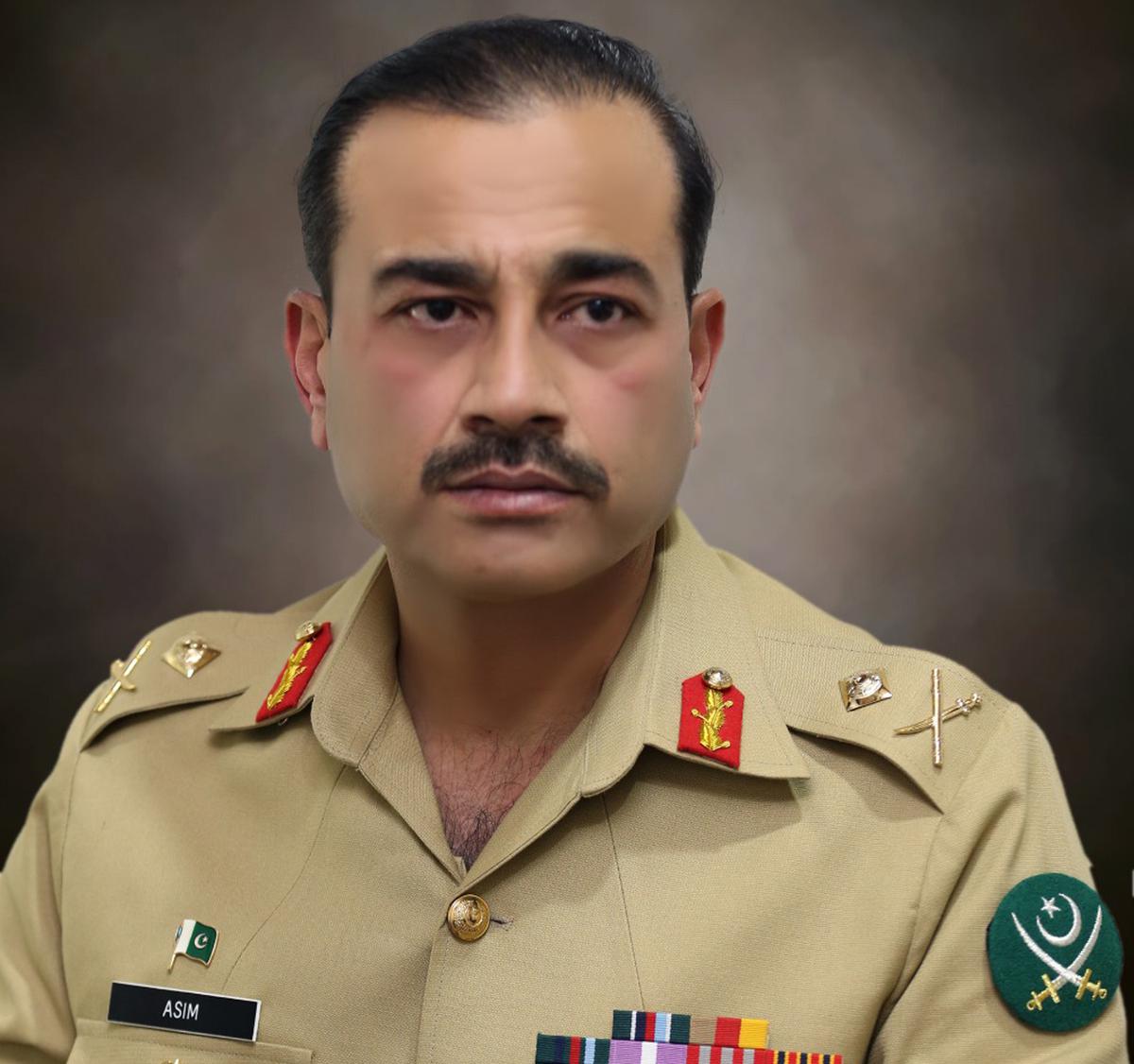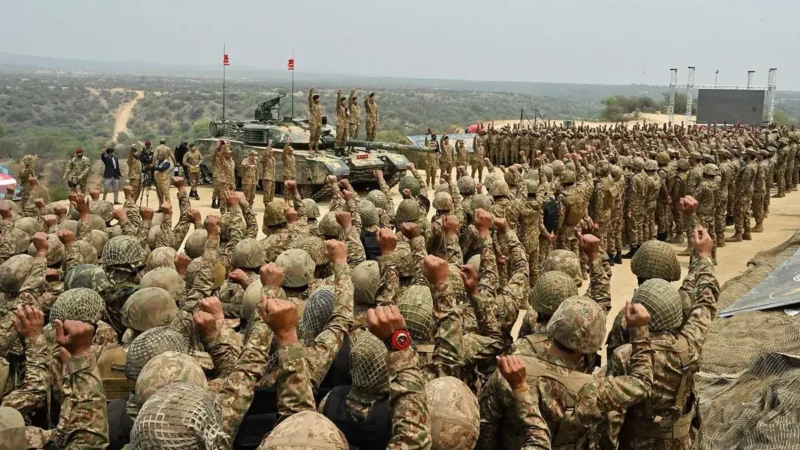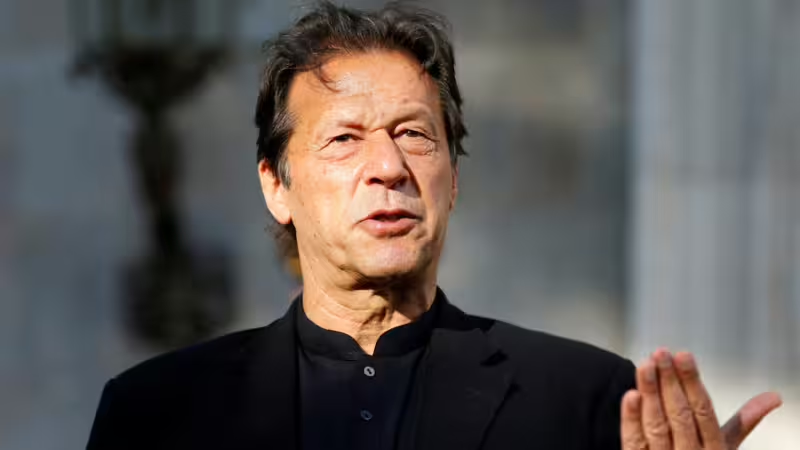Calls for action against Pakistani Army Chief Munir over transnational repression

Pakistani Army Chief General Asim Munir has been under the scanner for crushing dissent and political vendetta not just in the country but abroad as well. Pakistani diaspora highlighting and protesting the weakening of the democratic credentials under Munir has been subjected to transnational repression. This has led to global calls for action against him, seeking his resignation or imposing sanctions on him.
Munir has been blamed for the ouster of former Prime Minister Imran Khan as well as election rigging to prevent Khan’s Pakistan Tehreek-e-Insaaf (PTI) from coming back to power. Aqil Shah, a professor on South Asian affairs at Georgetown University, said: “As army chief, he has already been quite brutal – Khan in jail, the election rigged, civilians facing military trial – which has dented his reputation.”
Activists and overseas PTI supporters have been instrumental in holding campaigns and agitations to expose the role of Munir in the electoral malpractices and military aggression in Pakistan, for which Munir has been held responsible. During the visit to the UK, Munir met with protests by British Pakistanis in London, who called him the ‘perpetrator and mastermind of transnational repression against overseas Pakistanis’. Khan said Munir threatened “democracy, our constitution, fundamental rights” and dismantled Pakistan’s “future to protect himself.”
Pakistani nationals living in the UK blamed Munir for transnational repression as they claimed that Pakistani security agencies were targeting them. Many British Pakistanis faced house surveillance, abductions, cancellation of National Identity Numbers, and additions to Passport Control Lists were the said illegitimate actions carried out by the Pakistani military for transnational repression. “They and many others are a victim of transnational repression by the military-backed illegitimate Pakistani regime, only because they exercised their right to freedom of speech,” said Jehanzeb Paracha, a UK-based PTI supporter.
American President Donald Trump was appealed by the Coalition to Change US Policy on Pakistan (CUSP) to help end the authoritarian military regime led by Munir. Ohio-based gastroenterologist Dr Waqas Nawaz said the overseas Pakistanis faced threats and intense repression for their political activism. “The price of peaceful protest should never be transnational repression. It should never include intimidation of families, raids on homes, or forced political silence through threats. Unfortunately, these are the tactics that the current Pakistani government has resorted to, using repression as a tool of punishment and persecution for dissent, even beyond its borders,” he said.
Washington-based Freedom House said Pakistan has had a history of transnational repression against those critical of its military, and it aggravated after Munir took over. “Pakistani authorities—under the influence of the military establishment—have sought to intimidate critics of the army at home and abroad,” it said. Moeed Pirzada, a US-based CEO and columnist of Pakistani origin, said Munir had destroyed the democracy of Pakistan by manipulating the constitutional values. “Unfortunately! Pakistani Regime is emerging as the biggest perpetrator of Transnational Repression in the world! They have simply gone “Mad” – blowing every issue out of proportion!” he said.
The diaspora is vulnerable to different tactics by Munir’s army-led government which transcends Pakistan’s border. Washington-based Pakistani journalist Ahmad Noorani said his family in Islamabad was tortured for reporting on transnational repression by Munir-led military forces. Due to my reporting on Pakistan Army Chief General Asim Munir, the ISI and Islamabad Police raided my home in Islamabad some time before (at 1:05 am Pakistan Time) and has tortured my two brothers in front of our mother. ISI has kidnapped both my brothers,” he wrote on X.
US lawmaker Ro Khanna asked the Trump government to sanction Munir and other military officials over transnational repression. “Horrified by reports of an attempted cover-up of the alleged killings of peaceful protesters by Asim Munir’s regime in Pakistan. The US must impose visa bans and asset freezes on senior officials in the military regime,” he said. Rashida Tlaib, a Muslim lawmaker from the US, criticised the repression of political opponents calling it “an attempt to suppress democracy and human rights”. “I stand with the brave Pakistanis who are rising up and protesting for change,” she said.
Expressing concerns over the growing repression, over 60 US Congressmen called them an attack on fundamental human rights.
“Pakistani authorities are increasingly engaging in transnational repression,” said these Congressmen. “Does the US maintain relationships with military and intelligence officials in Pakistan who have been credibly accused of violating democratic principles and human rights, including Chief of Army Staff Asim Munir?





